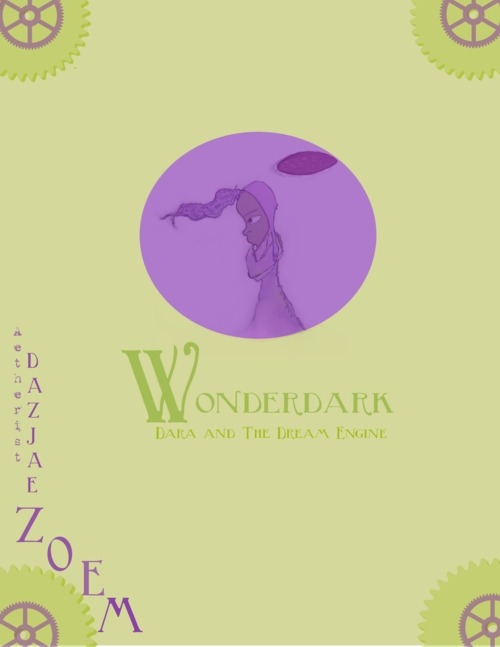The answer to that question is dependent upon how you define 'Indie'. It's a matter that has the makings
of a heated debate in certain circles, but two of the main definitions can be agreed upon (if begrudgingly)
by those wishing to ensure the honoring of a correct Indie definition. They are:
Indie: (Indy) 1: independently created. DIY.
Indie: (Indy) 2: independently-minded creation.
By both of the definitions, it's certainly possible to be a commercial success with the right branding,
enthusiasm, and of course... patience. We can't expect that commercial success equates to sacrificing one's vision.
Everyone has to eat in this particular realm. Business isn't necessarily evil. Whether your indie venture is run
with the right mentality at its root or not is easily revealed by asking yourself why you're doing it and to what
end? 'Selling out' is only shameful when indie artists/merchants sacrifice their vision for popularity
and perceived wealth.
When did selling one's vision/soul become a pitfall to avoid? It always has been in societies
where wealth, and status lorded over others by insecure people posing as the elite has been a concern,
but the focus on maintaining one's artistic integrity became especially important in the 20th century
when payola radio and other cheating systems of business threatened to compromise the arts and the message
that came from our most profound minds.
The problem in reality is fairly grave, especially because the corruption in the system went one further and branded
'selling-out [one's soul/vision for wealth/fame/etc]' pridefully; placing garlands around the heads of artists willing
to create a false culture of lower-to-middleclass-
a time (until it could maintain the charade no more) to fool listeners into buying records, films, merch, and junk lit pushing
the same ideals. How did they do it? With the mass' collective help no doubt, but there's a reason some of our number
helped the machine shut-out worthy culture and replace it with the equivalent of sonic/artistic astro-turf.
A number of us simply didn't know better. Didn't know about indie radio, indie magazines or the indiestream in general.
The Indie Machine wasn't loud enough or technologically powerful enough to easily reach large numbers of people
before the end of the 20th century. In a way that seems fated, that has changed however, and while there is room
to celebrate the instant-access nature of the internet's natural indie focus for purveyors of purely-rooted artistry,
creation, design and etc, many have no idea how to go about becoming successful commercially with even the internet as a tool,
and quit after taking one or two steps. Others are afraid to 'become the problem' and do very little to brand themselves,
hoping for grassroots magik that will effortlessly lead people to them, even without them doing shows
or sending out product samples.
There's been a seriously pervasive lack of know-how interfering with our ability to get good indie offerings
out to the masses, and a question many indies struggle with regarding artistic/indie integrity. It's a problem
that may take some time to solve, but it shouldn't take too much time. Already the desire of the people en large
to enjoy original, unique [non-formulaic] artists has caught the attention of The Machine's main rig operators,
and they've begun to collect authentic 'hipsters', while also packaging more controllable hipster clones
[because even after the basic collapse of the record business they haven't truly learned].
If we're not careful, we could miss a serious opportunity to create an Indiestream that isn't compromised
by financiers with agendas far removed from cultural-empowerment, and frighteningly close to cultural sabotage.
The Indie movement has a real opportunity to come together and create buzz that is paid for with talent and effort,
rather than fluffed-up formulaic illusions.
All it will take is making friends with the notion that business can be ethical. Indie artists should respect the time
of those who support them. Respect the interviewers who express interest. Return calls and emails within
7-14 business days at least. Put a notice up at the project site if there won't be customer service available
for a designated amount of time. Avoid arrogance, temper tantrums when reviewers can't accomodate a project soon enough
(the best move is to send samples out 4 months in advance of release like the pros to give time for review), and strive for respect
and punctual service. The ones a person burns are usually the ones they end up needing the most in the end.
Branding can be done very effectively by a small, even one-person team, but it takes heartlight to fuel it. An
indie has to love what they're doing, respect their audience/market enough to be sure the service (and customer service)
is reasonable for their customer base, and they have to be willing to work. Without a team of illusion-makers rallying around
an artist on the machine's very shiny dime, creative consciousness is not only imperative, but truly becomes its
own reward and route to freedom. The excitement of an indie's vision should be apparent in the logo, and in the smile
of the representative or artist. An indie should be excited about what they're doing/saying. If they love it, the love will
be infectious and catch on in their audience.
And really, without enthusiasm and heart-felt motivation why would an indie bother to extend an offering?
It's all in the motivation.
Biline: PurpleZoe a.k.a Dazjae Zoem is a Blackbean burger flipping (Herbivore), Motherland Faery whispering cheerleader
for the indie movement and underpresented culture in general. Her writings can typically be found via www.tinyurl.com/Zambarau
and purplemag.com
Note: This piece was previously published here in a form slightly different than the original version posted in today's entry.
In other news of the independently-minded variation: #freemumia
Today is the day his freedoms were stolen.












 photo:
photo: 














 Believe (Black Faerie) Dazjae(C)06
Believe (Black Faerie) Dazjae(C)06



No comments:
Post a Comment